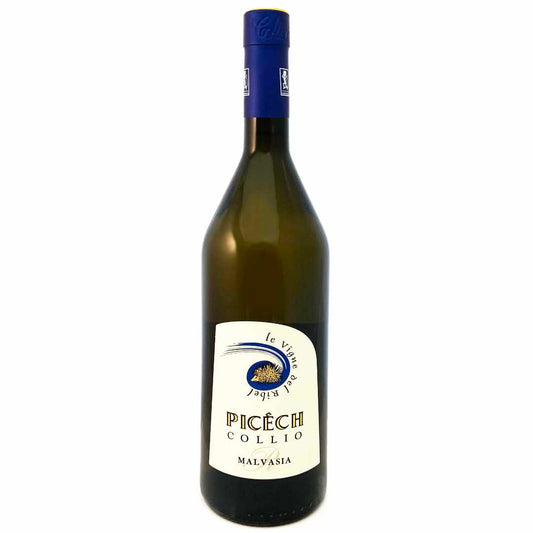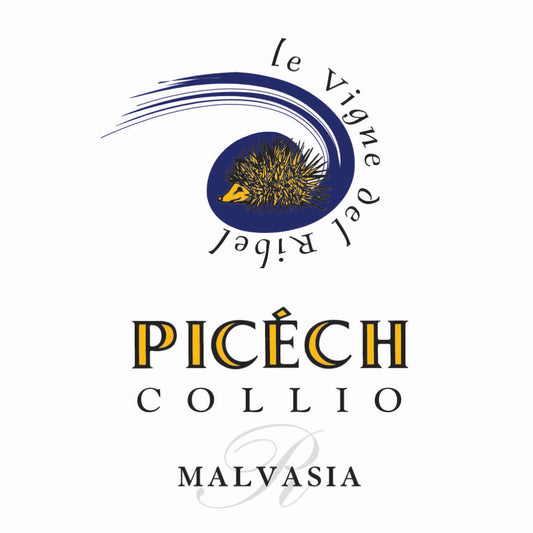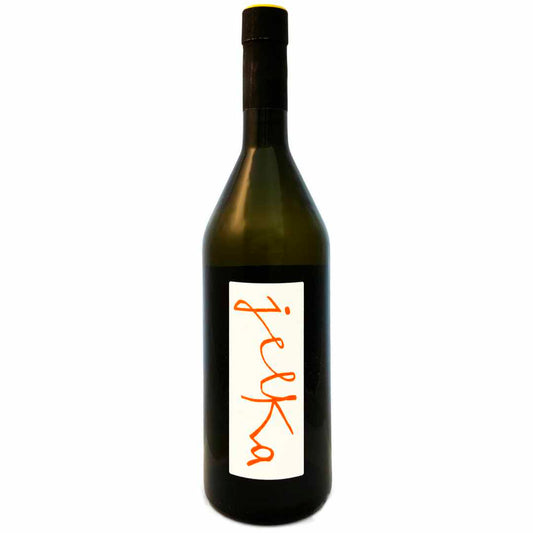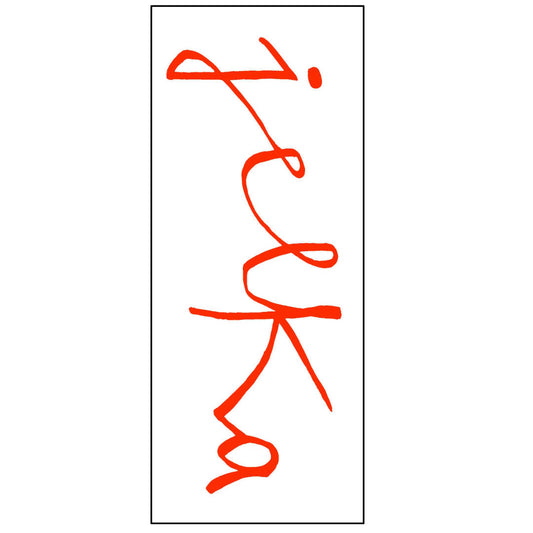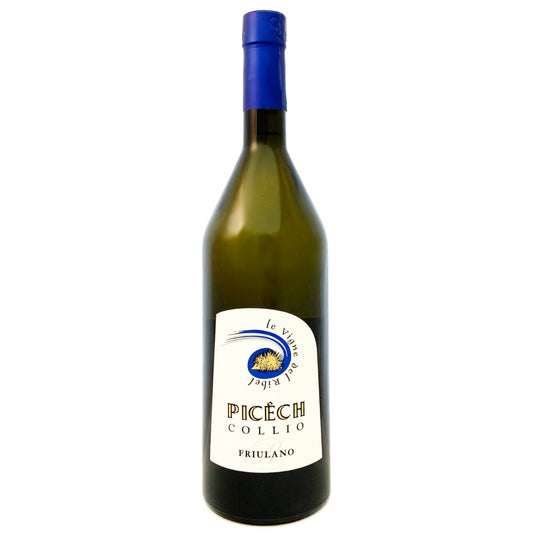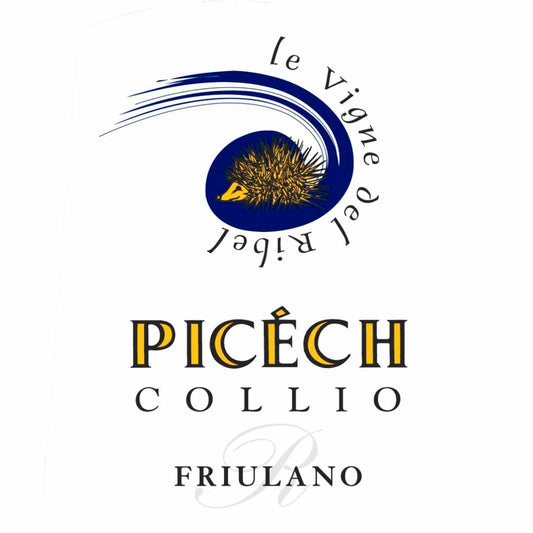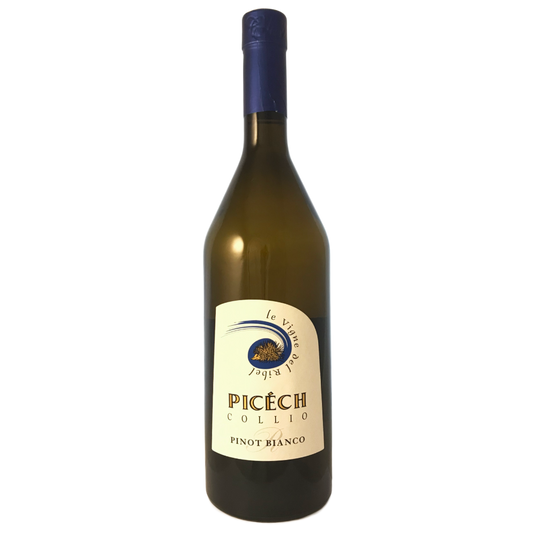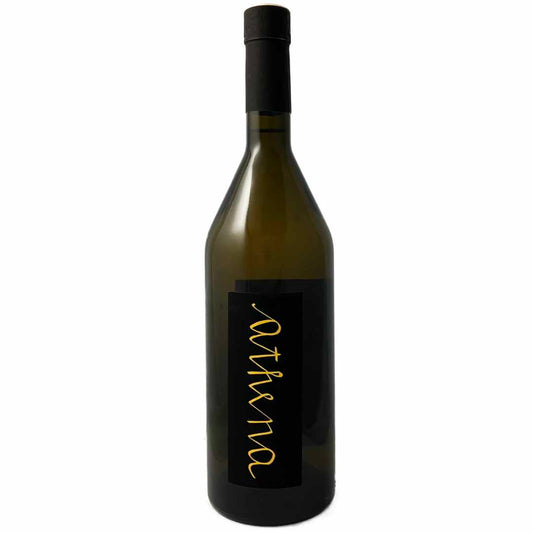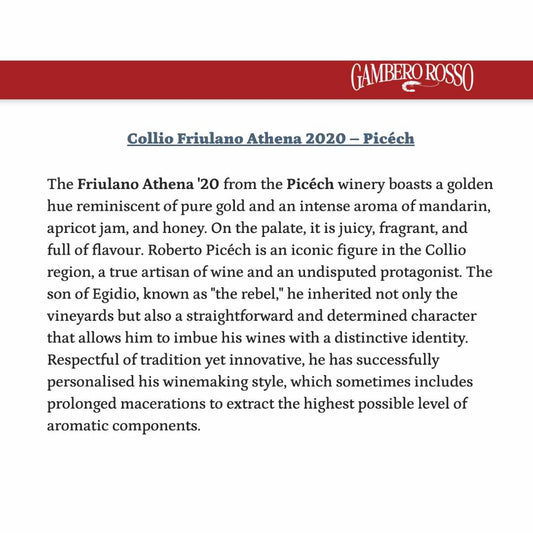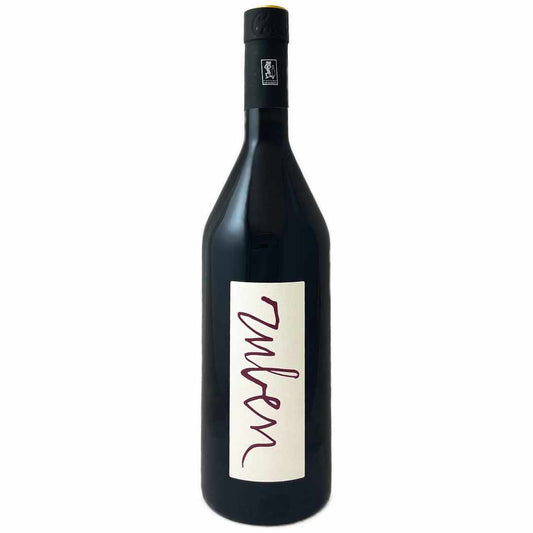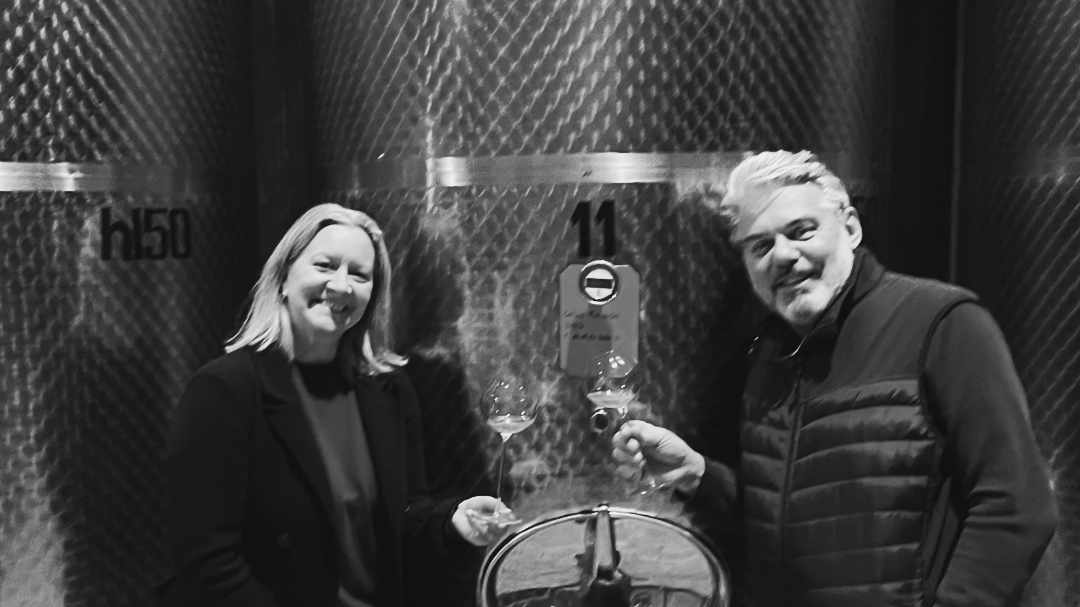
Alessia and Roberto
Azienda Agricola Picech
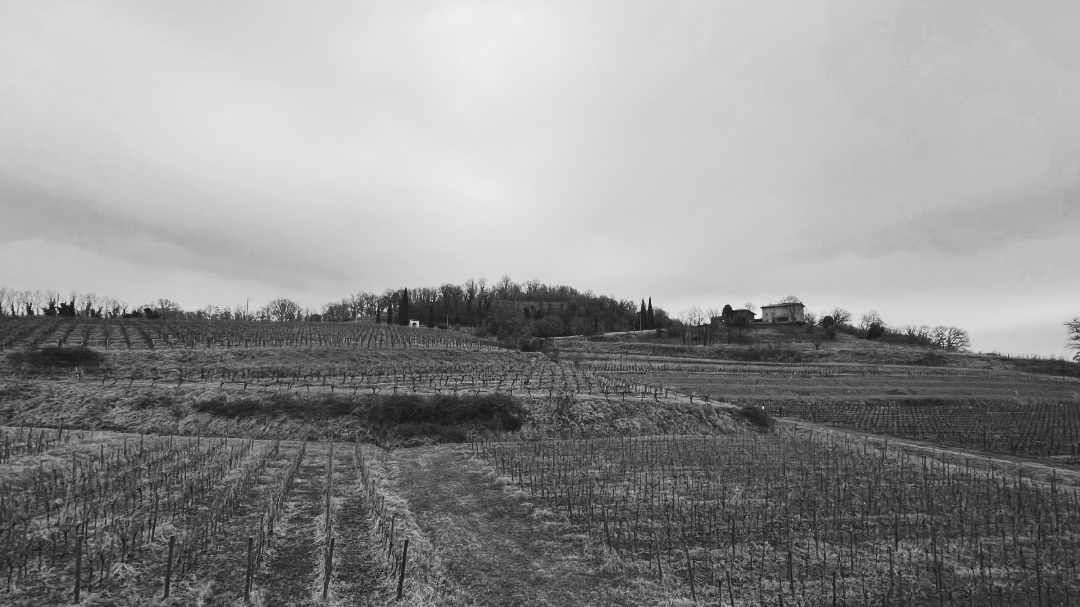
Picech
Collio, Friuli
Collection: Picech
Pradis, Collio, Friuli
Pradis is a hilltop hamlet outside Cormons. Look east and Slovenia is clearly visible, the Dolomites stand to the north while the Bay of Trieste lies to the south. Nature has gifted a rare combination of protection and moderation. The hills were once maritime and the rock is known locally as ‘ponca’, it breaks like slate and looks like light limestone. It is an area highly valued as a fantastic medium for vines, well drained and rich in minerals. The terroir is prized and, though word is out, we still haven’t quite yet got it in the UK, it’s complicated.
Roberto has his own very particular philosophy; he treats the vineyard like a kitchen garden and in the cellar he observes, rather than forces the grapes passage to wine. His favourite wines are named after his children and mother, all are named after his father ‘il Ribel’. There are few more individual characters than Roberto Picéch, cut him and he will bleed Collio yellow.
-
Picech. Malvasia Istriana
Regular price From £28.50Regular price£28.50Offer price From £28.50 -
Picech. Jelka
Regular price From £39.50Regular price£39.50Offer price From £39.50 -
Picech. Friulano
Regular price £28.00Regular price -
Picech. Pinot Bianco
Regular price £24.50Regular price -
Picech. Friulano 'Athena'
Regular price £40.00Regular price£40.00Offer price £40.00 -
Picech. Collio Rosso Riserva 'Ruben'
Regular price £55.00Regular price£55.00Offer price £55.00

